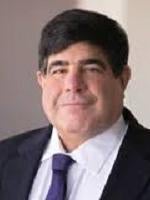As we previously reported, in June 2015, the Consumer Financial Protection Bureau’s (CFPB’s) Director issued his first decision on appeal from his own administrative law judge (ALJ). In the matter, CFPB Director Richard Cordray increased the monetary penalty imposed on a mortgage loan originator and trader from the $6.4 million imposed by the ALJ (who, it should be noted, was authorized by the Director to decide the matter) to $119 Million (see Decision of the Director, In the Matter of PHH Corporation, et al).
The matter is now scheduled for oral argument before a Panel of the District of Columbia Circuit on April 12, 2016. In a relatively unique procedural order, the court directed the parties to be prepared to answer two questions:
1. What independent agencies now or historically have been headed by a single person? For this purpose, consider an independent agency as an agency whose head is not removable at will but is removable only for cause.
2. If an independent agency headed by a single person violates Article II as interpreted in Free Enterprise Fund v. PCAOB, what would the appropriate remedy be? Would the appropriate remedy be to sever the tenure and for-cause provisions of this statute, see 12 U.S.C. §5491(c)? Or is there a more appropriate remedy? And how would the remedy affect the legality of the Director’s action in this case?
Order, PHH Corporation, et al. v. Consumer Financial Protection Bureau (D.C. Cir. April 4, 2016) (internal citations omitted).
The order squarely calls into renewed focus the ongoing controversy over the nature, scope, and legality of the CFPB’s organizational structure and administrative powers. It further signals the court’s interest in the apparent lack of remedy for a non-judicial official performing what has historically been an executive branch task, but (i) who may only be removed from office for cause, (ii) who directs operations that are not subject to the ordinary budget oversight of the legislative branch, and (iii) whose findings of fact and conclusions of law are not reviewable in a trial court but are afforded, at least by statute, the apparent statute of a district court judgment.
Although this case presents a unique set of facts applying a unique law, it will be closely watched to determine the extent to which the US Congress may insulate the work of an executive branch official (or one performing the work of an executive branch official) from the balances provided in the US Constitution by the legislative and judicial branches of government.



 />i
/>i

